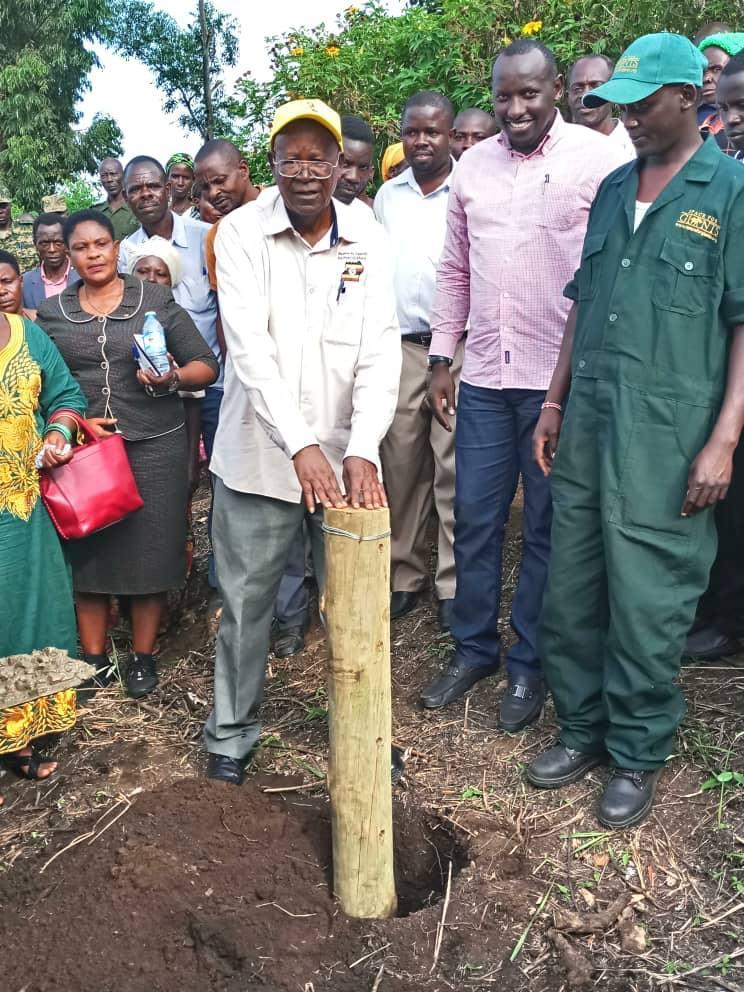Uganda launches electric fence project to prevent clashes between farmers and elephants
A 10km fence is being built on the eastern boundary of the country's Queen Elizabeth National Park

Your support helps us to tell the story
From reproductive rights to climate change to Big Tech, The Independent is on the ground when the story is developing. Whether it's investigating the financials of Elon Musk's pro-Trump PAC or producing our latest documentary, 'The A Word', which shines a light on the American women fighting for reproductive rights, we know how important it is to parse out the facts from the messaging.
At such a critical moment in US history, we need reporters on the ground. Your donation allows us to keep sending journalists to speak to both sides of the story.
The Independent is trusted by Americans across the entire political spectrum. And unlike many other quality news outlets, we choose not to lock Americans out of our reporting and analysis with paywalls. We believe quality journalism should be available to everyone, paid for by those who can afford it.
Your support makes all the difference.Uganda has launched its first electric fence project to help stop farmers and elephants clashing at the edge of one of its most famous national parks.
The 10km fence, which is being built on the eastern boundary of Queen Elizabeth National Park, is being built under the supervision of the international conservation charity Space for Giants after a number of farms had their crops destroyed by their animals.
Once completed, it is intended that as second phase of the project will see the fence doubled in size. More than 4500 households are likely to be protected as a result.
The move was widely welcomed by local communities, who had become frustrated at how the elephants were not being stopped.
Farmer Kelma Kalema said many children had been dropping out of school as the wild animals were destroying local people’s sources of income.
“We were missing the love of our husbands because they were spending nearly all nights outside, from January to December, guarding our gardens,” she told the local Ugandan media.
The project was officially launched by the Ugandan Minister of Tourism, Wildlife and Antiquities, Professor Ephraim Kamuntu, in a ceremony in Kyenzaza village.
“This project is very important because it’s as new and imaginative innovation to the measures we have taken to prevent human animal conflict,” he told The Independent.
“In the absence of these barriers the animals roam onto people crops and they can more easily be poached. This is a very important contribution and we thank Space for Giants for its support.”
Across Africa, wherever people and elephants share space there is a potential for conflict, which is characterised by severe economic losses to farmers and the retaliatory killings of elephants. As human populations grow and the habitat for wildlife shrinks, resolving this conflict and promoting peaceful coexistence is becoming one of the key challenges for conservationists.
Space for Giants started the fence project in Uganda, working with the Uganda Wildlife Authority, in October. The initial site chosen is one of the most fertile farming locations in Uganda, and previously farmers had resorted to constructing makeshift shelters to try to protect their crops from elephants.
The fences which are only three foot tall come with electrified protruding arms that conduct electrical charges of over 7,000 volts, enough to not be dangerous but to ensure a memorable shock to crop-raiding elephants.
Maurice Schutgens Space for Giants’ fence expert, said: “Human elephant conflict is increasingly becoming the defining conservation challenge of our time. It is hugely encouraging to see the Ugandan Government at its highest level committed to looking for solutions that will benefit both its people and wildlife.“
Join our commenting forum
Join thought-provoking conversations, follow other Independent readers and see their replies
Comments